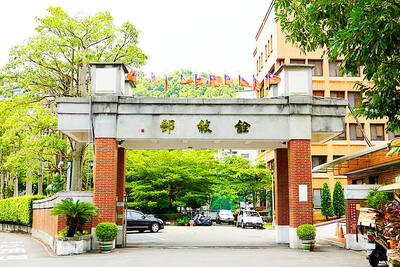Australian telecoms giant Telstra yesterday launched a new 3G mobile broadband network as the firm moves to bolster investor confidence ahead of a troubled share sale.
The company's chief executive, Sol Trujillo, claimed the world's geographically largest national 3G network would offer wireless mobile and Internet access to 98 percent of the people of sparsely-populated Australia.
The "turbo-charged" service, which boasts a beefed up third generation (3G) mobile technology, was five times faster than any other network in the country and would offer its users 12 channels of television, sport and movie downloads.
"You see this is the day ... that life in Australia will be changed forever," said Trujillo of the network, put in place with an investment of A$1 billion (US$746 million) in little more than 10 months.
"This is an exciting day for all Australians, no matter where they live and work," he boasted.
"It is a versatile, high capacity network with headroom for higher speeds in the months and years ahead," said Trujillo, who is at the center of an increasingly bitter war of words over his management style with the Australian government, which holds a 51.8 percent stake in the telecoms firm.
Telstra customers will be able to download material at an average speed of 550 kilobytes to 1.5 megabytes per second (Mbps), with peak network speeds reaching up to 3.6Mbps, increasing to 14.4Mbps early next year.
Telstra's 3G customers, which currently number approximately 420,000 compared to rival Hutchinson's 1 million, will have to buy new handsets which it has been developing in conjunction with Samsung, Motorola, LG and Sony Ericsson.
"From today, almost every Australian is going to have access to nationwide, very high speed mobiles and Internet," Telstra group managing director consumer and small business David Moffatt said.
But the glitzy investor briefing strategy at which the plans for the network were unveiled was rudely interrupted when a fire sprinkler activated in the room, sending hundreds of analysts scrambling for cover.
As Telstra touted its new broadband mobile network, analysts also poured more cold water on the significance of the announcement, especially as Australia lags far behind in its fixed broadband infrastructure.
"I'm very sorry but this is a load of rubbish, it's just another network -- nobody's going to use it for watching television services," media analyst Paul Budde of the Web site Budd.com said.
While the technology is good, it is not what Australia really needs and it remains unclear whether the user rates would be affordable for a significant proportion of the population, according to Budde.
Also at the investors' conference on its five-year transformation program, which began nearly a year ago, Telstra forecast 1.5 to 2 percent revenue growth next year, with earnings before interest and tax to rise 2 percent to 4 percent.
The network launch came ahead of the government's unveiling on Monday of the prospectus for the sale of A$8 billion worth of stock, or one-third of its holding, in Telstra.

Taiwan Semiconductor Manufacturing Co (TSMC, 台積電) is expected to start construction of its 1.4-nanometer chip manufacturing facilities at the Central Taiwan Science Park (CTSP, 中部科學園區) as early as October, the Chinese-language Liberty Times (the Taipei Times’ sister newspaper) reported yesterday, citing the park administration. TSMC acquired land for the second phase of the park’s expansion in Taichung in June. Large cement, construction and facility engineering companies in central Taiwan have reportedly been receiving bids for TSMC-related projects, the report said. Supply-chain firms estimated that the business opportunities for engineering, equipment and materials supply, and back-end packaging and testing could reach as high as

CHAMPIONS: President Lai congratulated the players’ outstanding performance, cheering them for marking a new milestone in the nation’s baseball history Taiwan on Sunday won their first Little League Baseball World Series (LLBWS) title in 29 years, as Taipei’s Dong Yuan Elementary School defeated a team from Las Vegas 7-0 in the championship game in South Williamsport, Pennsylvania. It was Taiwan’s first championship in the annual tournament since 1996, ending a nearly three-decade drought. “It has been a very long time ... and we finally made it,” Taiwan manager Lai Min-nan (賴敏男) said after the game. Lai said he last managed a Dong Yuan team in at the South Williamsport in 2015, when they were eliminated after four games. “There is

Democratic nations should refrain from attending China’s upcoming large-scale military parade, which Beijing could use to sow discord among democracies, Mainland Affairs Council Deputy Minister Shen You-chung (沈有忠) said. China is scheduled to stage the parade on Wednesday next week to mark the 80th anniversary of Japan’s surrender in World War II. The event is expected to mobilize tens of thousands of participants and prominently showcase China’s military hardware. Speaking at a symposium in Taichung on Thursday, Shen said that Chinese Minister of Foreign Affairs Wang Yi (王毅) recently met with Indian Prime Minister Narendra Modi during a visit to New Delhi.

FINANCES: The KMT plan to halt pension cuts could bankrupt the pension fund years earlier, undermining intergenerational fairness, a Ministry of Civil Service report said The Chinese Nationalist Party (KMT) caucus’ proposal to amend the law to halt pension cuts for civil servants, teachers and military personnel could accelerate the depletion of the Public Service Pension Fund by four to five years, a Ministry of Civil Service report said. Legislative Speaker Han Kuo-yu (韓國瑜) on Aug. 14 said that the Act Governing Civil Servants’ Retirement, Discharge and Pensions (公務人員退休資遣撫卹法) should be amended, adding that changes could begin as soon as after Saturday’s recall and referendum. In a written report to the Legislative Yuan, the ministry said that the fund already faces a severe imbalance between revenue